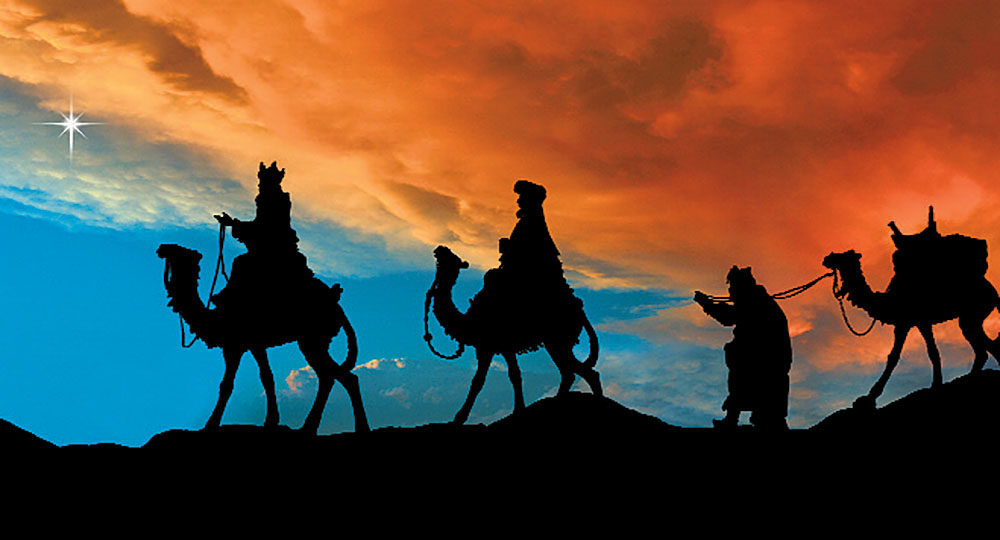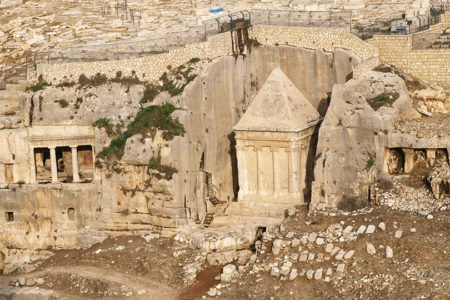A Star in the Heavens
The Magi, sometimes translated “wise men,” came to worship the King of the Jews using a star and the Scripture as their guide.
Now after Jesus was born in Bethlehem of Judea in the days of Herod the king, behold, wise men from the East came to Jerusalem, saying, “Where is He who has been born King of the Jews? For we have seen His star in the East and have come to worship Him” (Mt. 2:1–2).
The Magi were an old, powerful priestly caste that practiced astronomy as well as astrology. Naturally, they would have been familiar with the writings of Balaam the Mesopotamian (Dt. 23:4).
Balaam was a prophet whom the king of Moab hired to curse the Israelites on their way to Canaan. But Balaam could only speak what the Lord commanded. One of his interesting prophecies is found in Numbers 24:17: “I see Him, but not now; I behold Him, but not near; a Star shall come out of Jacob; a Scepter shall rise out of Israel.” The extraordinary star that led the Magi to the One who was born King could have been the manifestation of the glory of God, which Jewish people call the Shekinah.
Others believe the Magi followed a literal, physical star. Although a star coming near earth would be catastrophic, God can easily overrule the laws of science. After all, He is El Shaddai, God Almighty, meaning He can do the impossible. And He certainly could have used the general light of nature, along with the Magi’s understanding of astronomy, to guide them to the Christ.
The heavens declare the glory of God; and the firmament shows His handiwork (Ps. 19:1).
Wrote Warren Wiersbe, “The revelation of God in nature prepares us for His revelation in the Scriptures. Ultimately, Jesus Christ reveals Himself as Savior. This was the experience of the Magi (Mt. 2). The light of nature led them to the light of the Word, which led them to the Light of the World.”1
The Magi would have known the history about the Hebrew captive Daniel who rose to great prominence in Babylon and then Persia. Because the prophet was prominent among the wise men, his writings would have been studied. The Magi may have used the 70-weeks prophecy of Daniel 9 to estimate the time of Messiah’s arrival. (For more on this prophecy, see “For You and For Me,”)
Expecting a Jewish king to be born in a palace, the Magi came to Jerusalem. But instead of finding a child to be worshiped, they found King Herod.
Troubled to hear about a rival king, Herod summoned the priests and scribes to acquire more information. They told him of Micah’s prophecy:
But you, Bethlehem Ephrathah, though you are little among the thousands of Judah, yet out of you shall come forth to Me the One to be Ruler in Israel, whose goings forth are from of old, from everlasting (Mic. 5:2).
Herod told the Magi about the prophecy. This may have been the first time they heard Messiah was to be born in Bethlehem. So they left Jerusalem and continued on their journey of faith.
Encouraged by a general understanding of the wonders of God in nature and relying, by faith, on Jewish prophecies, they eventually found Jesus. So God announced the Good News to wise men by revealing a star that brought them to the Scriptures, which led them to the Savior.
ENDNOTE
- Warren W. Wiersbe, “The Perfect Word,” Prayer, Praise and Promises (Lincoln, NE: The Good News Broadcasting Association, 1992), 43.







